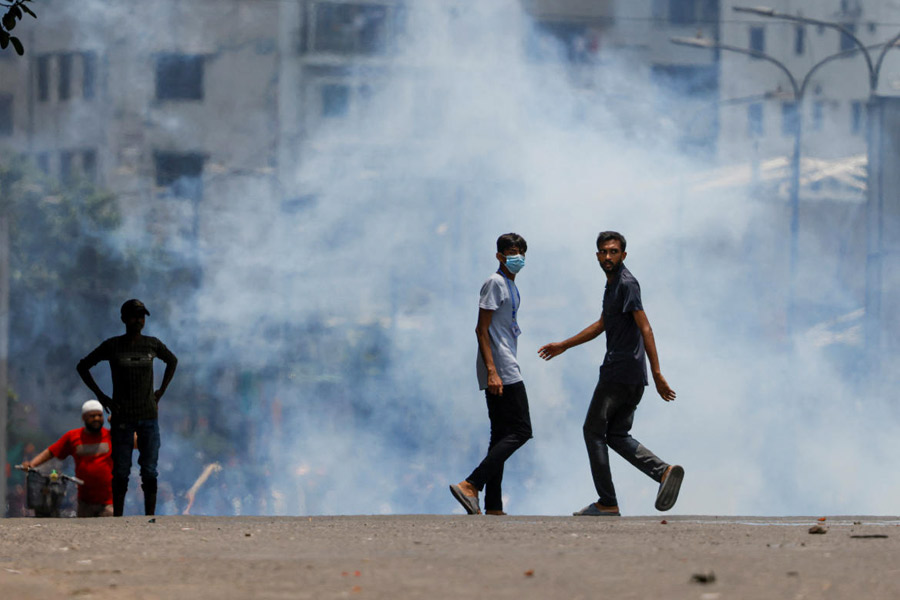The Bangladesh Supreme Court on Sunday dramatically cut down the controversial quotas in government jobs that have been at the heart of massive, nationwide protests in recent weeks. Student protesters have been demanding that a 30% quota for descendants of freedom fighters, in particular, be scrapped. The agitation, initially peaceful, had in recent days exploded into deadly clashes between protesters on the one hand and the police and the activists of the ruling Awami League’s student body on the other. More than 100 people have been killed in the violence. The Supreme Court has shrunk the quota for families of freedom fighters to 5%, with other quotas, which previously stood at 26%, cut to 2%. But a tense curfew remains in place, with the military out on the streets and a complete internet blackout. Students are now demanding justice for their fallen comrades in addition to scrapping the quota. Meanwhile, the government claims that the protests have been fanned by Opposition parties. What is clear is that Bangladesh is on the brink — and it will be difficult for the country of 170 million people to return to the status quo from before the protests unless both sides, and especially the government, make serious concessions.
In many ways, the tensions in Bangladesh reflect a battle for the country’s identity. The prime minister, Sheikh Hasina Wajed, has tried to placate protesters, asking them to trust the judicial system while emphasising that the government too had previously opposed job quotas. At the same time, she has referred to Razakars — collaborators with the Pakistani army during the freedom struggle in 1971 — while talking about the protesters, angering the students further. The descendants of Bangladesh’s freedom fighters are indeed bearers of a heroic legacy. But it is the job of any government to both defend the best of its past and cater to the demands of the future. Bangladesh’s government must ensure that the economic uncertainties that undergird the sentiments behind the protests are addressed even as it needs to ensure that families of those killed in the violence receive justice. India, which is watching the violence in an otherwise stable and friendly neighbour with concern, must prod the government of Bangladesh to recall the spirit of 1971. At its best, Bangladesh can be a model that others in the region and beyond can learn from. It must not tear itself apart.











